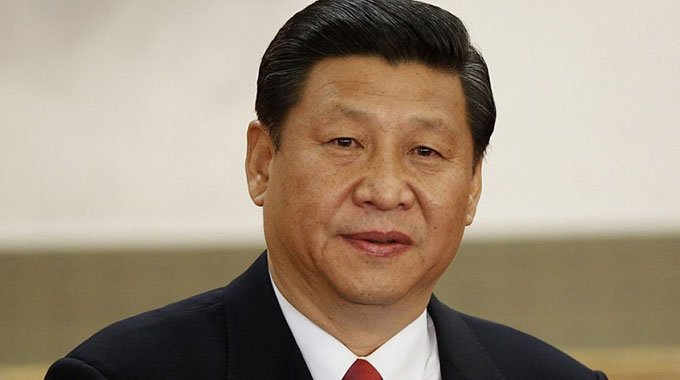Ecological progress vital for future generation

Beaven Dhliwayo Features Writer
China’s environment policy in light of rising concerns about climate change and greater awareness of the need to preserve nature, even in a period of rapid industrial growth, carries significance.
A major review of the ecological progress of the Asian giant will show that it has made considerable headway in its actions as well as advocacy of ecological progress.
Under President Xi Jinping, China has improved ecological environment management and governance, and also freely shared its experience with other nations.
The change in weather patterns in recent years that has been experienced in Zimbabwe — prolonged droughts and floods — has resulted in a negative impact on the environment and has led to threats to human security.
It is thus imperative for Zimbabwe to learn from its all-weather friends, as it is now widely known that the world is significantly under siege from a wide array of environmental challenges.
For the country to prosper, the green economy paradigm is necessary to overcome challenges of sustainability that the world is facing today.
President Xi and his administration have put great importance to incorporating China’s ecological progress into every facet of social, political, economic and cultural development.
In this regard, the Chinese government has brought into effect several major policies that have produced significant results and this could be beneficial for present and future generations of Zimbabwe.
The theories applicable to ecological progress, newly refined and expressed in plain language, have raised public ecological awareness.
It is pointed out, for example, that a healthy ecology nurtures a prosperous civilisation, that green hills and clean water are China’s gold and silver mines, and that the ecological environment is a productive force.
In his book, “The Governance of China 1”, President Xi said efforts for ecological conversation and environmental protection will benefit future generations.
He said nations must take responsible attitude towards the people and future generations, be resolute in controlling environmental pollution, strive to usher in a new era of ecological progress and improve the environment for the people to live and work in.
“Ecological progress is of vital importance to the future of the nation and well-being of its people,” he wrote.
“The 18th National Congress of the of the Chinese Communist Party (CCP) listed ecological progress along with economic, political, cultural and social progress as the five goals in the overall plan for the cause of Chinese socialism, vowing to promote ecological progress to build a beautiful China and achieve lasting and sustainable development of the Chinese nation.
“We must raise awareness of the need to respect, protect and accommodate ourselves to nature, follow the basic state policy of resource conversation and environmental protection and give high priority to conserving resources, protecting the environment and promoting its natural restoration.
“We must dedicate ourselves to raising our ecological awareness, enhancing relevant systems, safeguarding ecological security, and improving the environment. We must preserve our geographical space and streamline our industrial structure, our mode of production, and our way of life in the interest of resource conservation and environmental protection.
“We must strike a balance between economic growth and environmental protection, and bear in mind that protecting the environment equates to developing productivity.
“We will be more conscientious in promoting green, circular and low-carbon development. We will never again seek economic growth at the cost of the environment.”
Promoting ecological progress should be Zimbabwe’s inevitable choice in reflecting the country’s sense of responsibility for global sustainable development.
With the increasingly growing populations, the country should battle against resource overexploitation and environmental pollution.
A salient example which Zimbabwe should emulate is China’s attitude and efforts in the Paris Agreement.
To tackle global climate change, the Chinese government made sustained, strenuous efforts — from negotiations through to approval — to the agreement’s eventual ratification.
China took the initiative by virtue of its commitment to cut its carbon emissions by 40 to 45 percent by the year 2020.
Zimbabwe is facing a number of environmental challenges such as climate change, biodiversity loss, illegal waste dumping, deforestation, poaching and veld fires, among others.
It is unfortunate that these challenges are fuelled by anthropogenic activities, negative attitude and lack of behaviour change by Zimbabweans.
The continuous environmental problems evident in the country need a change in behaviour and mind-set towards environmental issues which will help create a clean and safe environment for country.
Local schools should provide children with the vital knowledge and skills on the environment to prepare them to deal with environmental challenges they will encounter after completing their studies.
Section 73 of the Constitution enshrines environmental rights to citizens and advocates that populations should not impact on future generations’ access to resources to allow them to enjoy them just as present generations.
Government should enact stricter regulations to protect the environment to compliment several pieces of legislation available such as the Environmental Management Act, Forestry Act and Parks and Wildlife Management Act.
Partnerships with development partners is urgently needed to tirelessly work in coming up with implementable actions to manage environmental challenges.
This is because despite the country’s efforts to enforce the provisions of the environmental Acts, and also providing an enabling environment for different sectors to address these provisions, the country has witnessed an increase in environmental problems over the years.
President Xi also pointed out that there should be clear measures that must be adhered to religiously in order to leave more space for nature’s self-restoration.
“We will accelerate the work of functional zoning, follow the functional definitions of different areas where development must be optimised, prioritised, restricted or forbidden, and delimit the strictly limited red lines. We will work out appropriate plans for urbanisation, agricultural development and ecological security, and improve services for ecological conservation.
“We must fully understand the importance of enforcing ecological red lines. Any violations regarding environmental protection will be punished,” President Xi said, adding that there must be strictest possible institutions and legislation in place in order to guarantee ecological progress.
The concept of green development has produced good results for the Asian giant.
China has carried out action plans aimed at controlling and preventing air, water and soil pollution.
The country has drawn up an ecological “red line” that declares certain regions under mandatory and rigorous protection, and protect and restore the natural ecology of mountains, waters, forests, farmland, and lakes.
China’s rural environment has considerably improved since the advancement of comprehensive management of the countryside.
President Xi tightened legal enforcement.
The judicial interpretation of the Supreme People’s Court and the Supreme People’s Procuratorate supplemented the criteria for violating environmental law and lowered the benchmarks for convictions, and the Supreme People’s Court has set up an adjudication division specifically for environmental resources.
In 2016, China slashed 65 million tonnes of production capacity for iron and steel, and 290 million metric tonnes of coal. The energy consumption per unit of GDP also fell 17,9 percent compared to the 2012 level.
China now leads the world in its installed capacity for generating hydro power, wind electricity, and solar power.
It is also the biggest consumer of new energy.
Meanwhile, energy conservation and environmental protection have become strategic industries that are undergoing accelerated development.
The capacity for environmental public service provision has been promoted. As of the end of 2015, the country’s maturing environmental infrastructure had enabled it to process 182 million tonnes of sewage daily in urban areas, making it the world No. 1 in this respect.
An impressive 92 percent of urban sewage was processed, and 94,1 percent of domestic garbage in urban built-up areas was under detoxification processing.
Zimbabwe should also try and abide to strict environmental laws and punish those that will not abide to the regulations.
One worrying case is that of a report by a Special Committee on commercial land sales and leases in Harare which exposed rampant corruption to the extent that 32 areas designated as wetlands are being illegally developed.
Government must immediately buy back all wetlands to restore the country’s water ecosystem, something that could avert water shortages in future.
Zimbabwe has already shown ability to shift towards a green economy through some of the policies that have been implemented, including environmental management Acts, Climate Change Response Strategy, Climate Policy, and Energy Policy among others.
It is not all about climate change, but it is about protecting the environment for the benefit future generations.









Comments